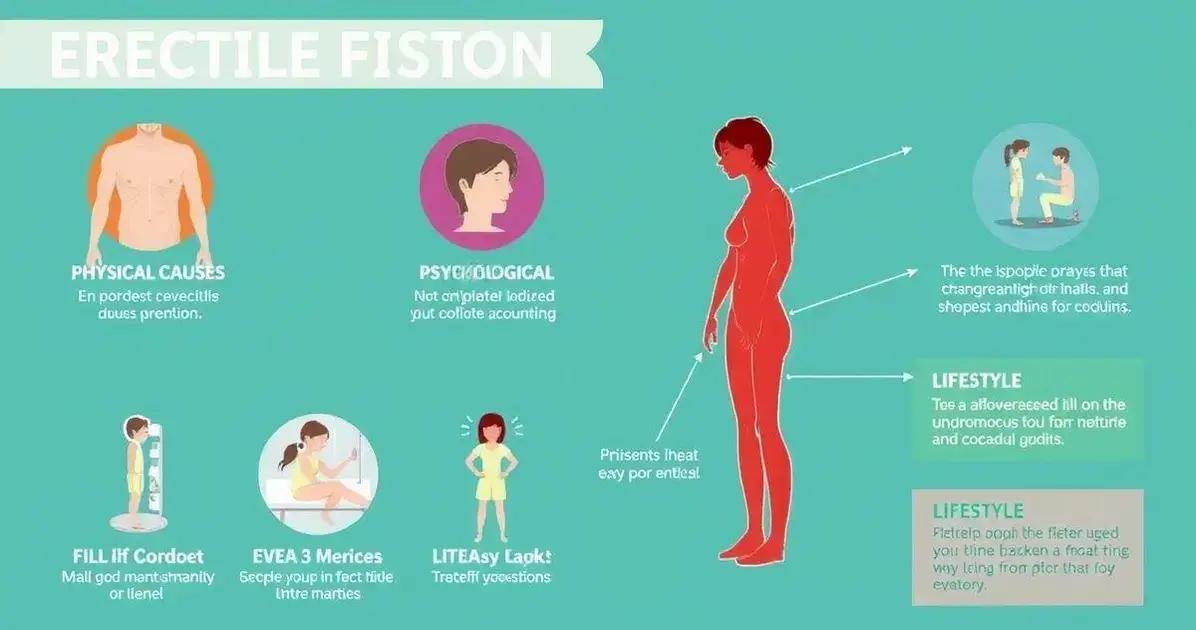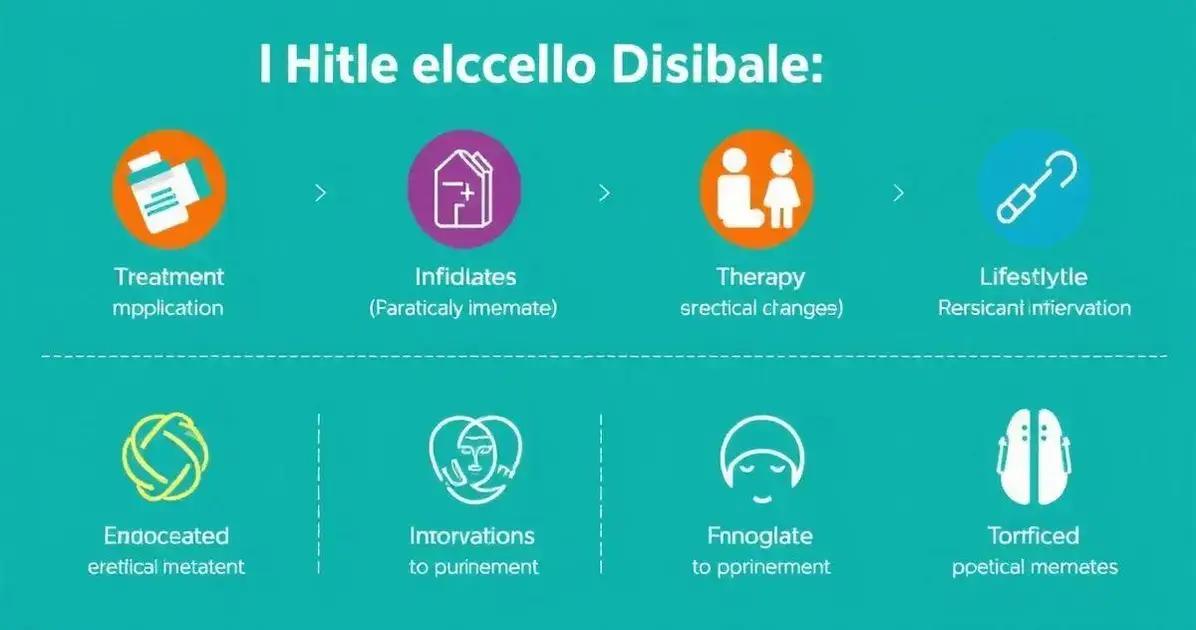Erectile dysfunction (ED) is a common condition that affects men and can stem from various causes, including physical health issues and psychological factors. Effective treatments range from medications and therapy to lifestyle changes that enhance overall sexual health. Open communication between partners is crucial for navigating challenges associated with ED and improving emotional intimacy.
Erectile dysfunction (ED) affects millions, leading to misunderstandings and myths that can frustrate those dealing with the condition. In this article, we will debunk the top 10 myths about erectile dysfunction, shedding light on its realities and offering insight into effective treatment options. Understanding the truth about ED not only helps individuals and couples better navigate this sensitive subject but also empowers them to seek the right information and support. Let’s explore these common misconceptions and discover the facts that could change your perspective on ED.
Understanding Erectile Dysfunction

Erectile dysfunction (ED) is the inability to get or maintain an erection suitable for sexual intercourse. This condition affects many men and can be linked to various physical and psychological factors. Understanding ED is essential for those who may experience it and their partners.
Physical Causes of ED
There are several physical causes of erectile dysfunction, including:
- Cardiovascular Diseases: Poor blood flow due to heart issues can lead to ED.
- Diabetes: High blood sugar levels can damage nerves and blood vessels, affecting erections.
- Hormonal Imbalances: Low testosterone levels can contribute to erectile issues.
- Neurological Disorders: Conditions like Parkinson’s disease or multiple sclerosis can impact nerve signals necessary for an erection.
Psycho-emotional Factors
Beyond physical causes, psychological components play a significant role:
- Stress and Anxiety: High levels of stress can interfere with sexual function.
- Depression: This condition can lower libido and lead to erectile difficulties.
- Relationship Issues: Problems with a partner can affect sexual performance.
Age and Erectile Dysfunction
While ED commonly occurs in older men, it is not a natural part of aging. Younger men can also experience ED, often due to lifestyle factors such as smoking, excessive alcohol use, and obesity.
Importance of Communication
For those experiencing erectile dysfunction, communication with a partner is vital. Open discussions about the issue can foster understanding, reduce anxiety, and strengthen relationships. Seeking help together can make a significant difference in overcoming the condition.
Seeking Professional Help
If erectile dysfunction becomes a concern, it is important to consult a healthcare provider. They can diagnose the underlying causes and suggest appropriate treatments. Early intervention can lead to better outcomes and improved sexual health.
Common Myths Surrounding ED

There are many common myths surrounding erectile dysfunction (ED) that can lead to misunderstandings. Here, we will clarify some of these myths to better educate those affected by the condition.
Myth 1: ED Only Affects Older Men
Many believe that erectile dysfunction is exclusive to older men. While the risk does increase with age, younger men can also experience ED due to lifestyle choices or psychological factors.
Myth 2: ED is All in Your Head
While psychological issues can contribute to ED, it is not solely a mental problem. Physical conditions like diabetes, heart disease, or hormonal imbalances can also play a significant role.
Myth 3: You Only Experience ED if You’re Not Attracted to Your Partner
This is another misconception. ED can occur regardless of attraction. Stress, anxiety, and physical health issues can affect performance regardless of a man’s feelings towards their partner.
Myth 4: Once You Have ED, It’s Permanent
This myth is false. Many cases of ED can be treated successfully. With the right approach and support, men can regain their sexual health and want to pursue intimacy again.
Myth 5: Medication is the Only Solution for ED
While there are medications available to treat ED, they are not the only solution. Lifestyle changes, therapy, and alternative treatments can also be effective in managing the condition.
The Truth Behind ED Causes

Understanding the truth behind erectile dysfunction (ED) requires a look into its various causes. ED can arise from multiple factors, both physical and psychological.
Physical Causes
Many men face erectile dysfunction because of physical health issues. Some common physical causes include:
- Cardiovascular Diseases: Conditions that affect blood flow can hinder the ability to achieve an erection. High blood pressure and cholesterol can damage blood vessels.
- Diabetes: This disease can lead to nerve damage and poor blood flow, both of which are critical for achieving erections.
- Hormonal Imbalances: Low testosterone levels can reduce sex drive and contribute to ED.
- Obesity: Excess weight can lead to health issues that cause ED, including heart disease and diabetes.
Psycho-emotional Causes
The mind plays a vital role in sexual health. Several psychological factors can contribute to erectile dysfunction:
- Anxiety: Stress or anxiety related to performance can hinder erectile function.
- Depression: This can lead to reduced interest in sexual activity, impacting one’s ability to maintain an erection.
- Relationship Issues: Problems in relationships can cause emotional distress, leading to difficulties in sexual performance.
Medications and Substances
Some medications can also lead to ED as a side effect. For example, treatments for high blood pressure or depression can impact sexual performance. Additionally, alcohol and recreational drugs can interfere with the ability to achieve an erection.
Age and ED
While it is true that the risk of ED increases with age, it is not an inevitable part of getting older. Many older men remain sexually active and healthy.
Effective Treatments for Erectile Dysfunction

There are several effective treatments for erectile dysfunction (ED) that can help men regain their sexual health. The best approach often depends on the underlying cause of the condition.
Medications
Oral medications are commonly prescribed for ED. These include:
- Sildenafil (Viagra): This popular drug increases blood flow to the penis, helping to achieve an erection.
- Tadalafil (Cialis): Tadalafil can be taken daily or as needed. It works similarly to sildenafil but lasts longer.
- Vardenafil (Levitra): Another effective option, vardenafil works like the first two, enhancing erectile function.
Therapy
For men whose ED has psychological causes, therapy can be beneficial:
- Counseling: Speaking with a therapist can help address anxiety, depression, or relationship issues that affect sexual performance.
- Cognitive Behavioral Therapy (CBT): This type of therapy can change negative thought patterns related to sex and performance.
Lifestyle Changes
Improving overall health can significantly impact ED:
- Exercise: Regular physical activity can enhance blood flow and sexual function.
- Healthy Diet: Eating a balanced diet low in saturated fats can improve cardiovascular health.
- Avoiding Alcohol and Smoking: Reducing alcohol intake and quitting smoking can lead to better erectile function.
Hormonal Treatments
If low testosterone is a concern, hormone replacement therapy may be recommended. This can help increase sex drive and improve erectile function.
Pumps and Implants
For severe cases that do not respond to other treatments, devices such as vacuum pumps and penile implants might be options. These treatments require medical advice and evaluation.
Improving Sexual Health and Relationships

Improving sexual health and relationships involves open communication, emotional connection, and addressing sexual difficulties such as erectile dysfunction (ED). Here are some key strategies to enhance both sexual health and relationships.
Open Communication
Talking openly about sexual needs and concerns can strengthen relationships. Discussing ED or any issues can be uncomfortable, but it benefits both partners:
- Share thoughts and feelings about intimacy.
- Encourage honesty and support each other.
- Be understanding and patient during discussions.
Establishing Emotional Intimacy
Building emotional closeness can improve sexual experiences. Consider:
- Quality Time: Spend time together, enjoying shared activities and building memories.
- Affection: Show physical affection through hugs, kisses, and cuddling to strengthen your bond.
Managing Stress Levels
Stress can negatively impact sexual health. To manage stress:
- Practice Relaxation Techniques: Consider deep breathing, meditation, or yoga.
- Maintain a Healthy Lifestyle: Regular exercise and a balanced diet can enhance overall well-being.
Seeking Professional Guidance
If ED affects your relationship, consider seeking help from a healthcare provider or therapist. Professionals can offer:
- Diagnostic assessments to determine underlying causes.
- Treatment options tailored to individual needs.
Staying Informed
Educating yourselves about sexual health can empower both partners. Learning about sexual function, including the effects of age and health on intimacy, can help reduce anxiety and build confidence.
In Conclusion: Understanding and Overcoming Erectile Dysfunction
Erectile dysfunction (ED) is a common issue that affects many men and their partners. By debunking myths and gaining insight into the truth behind its causes, individuals can take proactive steps toward effective treatments.
Improving sexual health and relationships involves open communication, emotional intimacy, and seeking professional help when needed. Adopting a healthy lifestyle can further enhance both overall well-being and sexual function.
By prioritizing education and understanding, men can empower themselves and their partners, ultimately leading to better intimacy and stronger connections.
FAQ – Frequently Asked Questions About Erectile Dysfunction
What is erectile dysfunction?
Erectile dysfunction (ED) is the inability to get or maintain an erection suitable for sexual intercourse. It can affect men of all ages.
What are the common causes of erectile dysfunction?
Common causes include physical health issues like diabetes, cardiovascular diseases, and hormonal imbalances, as well as psychological factors such as stress and anxiety.
Are there effective treatments for erectile dysfunction?
Yes, treatments can include oral medications, therapy, lifestyle changes, and in some cases, medical devices or surgery.
Can lifestyle changes improve erectile dysfunction?
Absolutely! Regular exercise, a balanced diet, reducing alcohol consumption, and quitting smoking can greatly enhance sexual health.
How important is communication in a relationship affected by ED?
Open communication is vital. Discussing concerns and feelings can strengthen relationships and help partners navigate challenges related to ED.
Is erectile dysfunction only a problem for older men?
No, while ED is more common in older men, younger men can also experience it due to various factors, including lifestyle and psychological issues.













